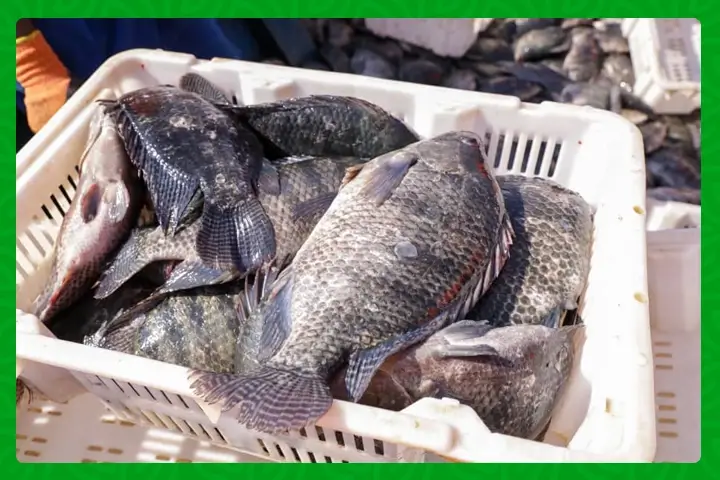
Rwanda’s fish farmers can now breathe a sigh of relief as the government extends its National Agriculture Insurance Scheme to include fish farming. This groundbreaking move promises to cushion aquaculture investors against substantial losses, fostering growth and stability within the sector.
The Impact of Uninsured Losses on Fish Farmers
The case of Themistocles Munyangeyo, owner of Fine Fish, highlights the severe consequences of uninsured losses in the aquaculture industry. On July 1, 2021, Munyangeyo lost 100 tonnes of fish worth over Rwf300 million due to a depletion of dissolved oxygen in Lake Muhazi. This disaster, which could have been mitigated with insurance, forced him to restart his business from scratch.
“I lost about 100 tonnes of fish worth more than Rwf300 million but I somehow started fish farming from scratch because I did not have insurance cover. If there were insurance, I would be compensated,” Munyangeyo lamented.
Government Response to Aquaculture Challenges
Recognizing the high-risk nature of fish farming, the Rwandan government has responded by including fish in its agriculture insurance scheme. This initiative, announced by the Minister of Agriculture and Animal Resources, Ildephonse Musafiri, is designed to protect farmers from unforeseen losses due to accidental death, diseases, epidemics, and environmental factors.
Musafiri emphasized that the inclusion of fish in the insurance scheme was driven by farmers’ requests and the need to mitigate climate change-related risks. In particular, the lack of oxygen in lakes and the proliferation of phytoplankton and blue-green algae in Lake Kivu have led to significant fish losses, underscoring the necessity of this insurance coverage.
The Insurance Scheme: A Boon for Fish Farmers
The newly expanded insurance scheme covers accidental death, diseases and illnesses, death due to epidemics, and stock disposal on the advice of an aquatic veterinarian. Fish farmers can now access insurance through companies such as Radiant Yacu, BK Insurance, Sonarwa Insurance, and Old Mutual, with a 40% premium subsidy provided by the government.
This development is a critical step forward for the aquaculture sector, which has seen significant investment and growth. The inclusion of fish in the insurance scheme will not only protect existing investments but also encourage new ones by providing a safety net against potential losses.
Boosting Financial Access and Sector Growth
With farmers like Munyangeyo investing heavily in fish farming—operating over 200 cages across two lakes and producing about 90 tonnes of fish per month—the need for financial protection is paramount. The government’s initiative is expected to enhance access to financial services, allowing farmers to expand their operations and attract further investments.
In the 2023/24 fiscal year, the Rwandan government allocated Rwf3.3 billion to agriculture insurance subsidies, increasing this to Rwf4.8 billion for 2024/25—a 41.8% rise. This significant investment underscores the government’s commitment to supporting the agriculture sector, including aquaculture.
Achieving Self-Sufficiency and Export Goals
Beyond protecting individual farmers, the insurance scheme aligns with Rwanda’s broader goals of achieving self-sufficiency in fish production and increasing fish exports. In the 2022/23 fiscal year, Rwanda’s fish production was estimated at over 46,000 tonnes, with a target to reach 112,000 tonnes by June 30, 2024. The insurance scheme is a strategic component in realizing these ambitious production targets.
A Call to Action
The Rwandan government encourages more farmers to join the insurance scheme and invites partners to contribute, aiming to extend the benefits to as many farmers as possible. The inclusion of aquaculture in the National Agriculture Insurance Scheme marks a significant milestone, offering a much-needed safety net for fish farmers and paving the way for sustained growth in the sector.
As Munyangeyo aptly puts it, “Insurance is critical in fish farming as the sector has risks, citing a situation where heavy rains always result in fish dying.” With the new insurance coverage, Rwandan fish farmers can now face these risks with greater confidence and security, ensuring the continued prosperity of the aquaculture industry.
The original article written by Emmanuel Ntirenganya
Stay updated with the latest farming tips and agriculture industry news from Africa by subscribing to our newsletter. Don’t miss out on valuable insights and updates. Follow us on Twitter, LinkedIn, and Facebook to join our farming community and stay connected with us.


















